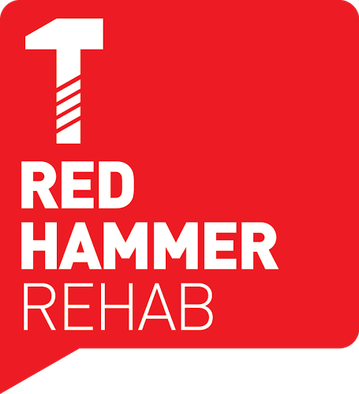Best Christian Addiction Rehab Resources and Information Online for Delavan WI
Home
Best Christian Addiction Rehab Resources and Information Online for Delavan WI. We have the complete source for complete info and resources for Christian Rehab on the web.
Even 100 days after the last use of cocaine, there is decreased metabolism in the brain's frontal area which regulates impulsive and repetitive behavior, planning and organizing activities, and critical thinking.[2] PET scans courtesy of Brookhaven National Laboratory The changes in the brains of addicted individuals are accompanied by changes in behavior such as irritability, apathy, decrease in job performance, inattentiveness, truancy, or bad grades in school. Now he wants to help others the same way he was helped, working with others who are struggling with addiction.
Should such an unfortunate situation may arise, the counselor on the phone will help you to handle the situation effectively and getting through it Providing general and specific information regarding the different types of drugs and their effects on the dependent. If, however, he lacks coping mechanisms—for instance, he may begin ruminating on his cravings (PATH 2)—then his efficacy for abstinence will decrease, his expectations of positive outcomes will increase, and he may experience a lapse—an isolated return to substance intoxication. Relapse prevention[edit] An influential cognitive-behavioral approach to addiction recovery and therapy has been Alan Marlatt's (1985) Relapse Prevention approach.[34] Marlatt describes four psychosocial processes relevant to the addiction and relapse processes: self-efficacy, outcome expectancies, attributions of causality, and decision-making processes. Getting loved ones the help they need may be difficult, though. Only your child can find the answers to their sobriety.
More Resources For Christian Drug Addiction Rehab

Much more Resources For Faith Based Recovery Programs
The following images compare the metabolism of a normal brain with that of a cocaine addict who has stopped using drugs. Do you put drugs before your own health needs and the needs of your loved ones and family? After understanding the matter’s depth and dynamics, they will refer the concerned to a correctional facility based on: the nature of drug use, the current stage of the patient the most appropriate treatment option 1-800-269-4237 National Inhalant Prevention Coalition (NIPC) Based in Tennessee, The National Inhalant Prevention Coalition hotline provides wide-ranged assistance by referring you to your nearby facilities. Addiction affects the whole family, not just the addict; the whole family need support whilst their loved one recovers and we can help with this too.
Extra Resources For Christian Drug Addiction Rehab
If you’re worried that a friend or loved one might be abusing drugs, look for the following warning signs: Physical warning signs of drug abuse or addiction Bloodshot eyes, pupils larger or smaller than usual Changes in appetite or sleep patterns Sudden weight loss or weight gain Deterioration of physical appearance, personal grooming habits Unusual smells on breath, body, or clothing Tremors, slurred speech, or impaired coordination Behavioral warning signs of drug abuse or addiction Drop in attendance and performance at work or school Unexplained financial problems; borrowing or stealing Engaging in secretive or suspicious behaviors Sudden change in friends, favorite hangouts, and hobbies Frequently getting into trouble (fights, accidents, illegal activities) Psychological warning signs of drug abuse or addiction Unexplained change in personality or attitude Sudden mood swings, irritability, or angry outbursts Periods of unusual hyperactivity, agitation, or giddiness Lack of motivation; appears lethargic or "spaced out" Appears fearful, anxious, or paranoid Warning signs of commonly abused drugs Marijuana: Glassy, red eyes; loud talking, inappropriate laughter followed by sleepiness; loss of interest, motivation; weight gain or loss. For more information, visit the Texas Mental Health and Substance Abuse Services website.
Much more Resources For Christian Drug Addiction Rehab
Out of the many Florida drug rehab centers, these have been most recommended by customers and experts. It is also a rehabilitation option for individuals whose addiction is less severe and doesn’t require inpatient treatment. Inpatient Addictions, General – Adult If you’re in need of a Rehab Care facility that will provide the round-the-clock support you or your loved one is looking for, our locator will help you find the best, closest, and most convenient Inpatient Rehab Center in your area. It assists in the transition from inpatient rehab treatment to integration back into daily living, clean and sober. Abusing drugs can leave you feeling helpless, isolated, or ashamed. For them, especially when they are actively using, it may be but a blip on the radar. The next call you make can create a better and healthier future! Where does it all start? Let’s start the healing now, do not let another day pass you by. Does the addicted individual suffer from any mental, behavioral, or co-occurring disorders? They will also ensure that any other illnesses are comprehensively treated and consult with the Counsellors and rehabs clinical team as to what needs to be addressed in the individual’s treatment plan. Whether true addiction ever occurs in animals is doubtful.
Click Here for More Information
Previous Next
You may also like:
Best Free Christian Drug Rehab Centers Resources and Information Online for Revere MA
Best Faith Rehabilitation Resources and Information Online for Kinston NC
Best Womens Rehab Centers Resources and Information Online for La Palma CA